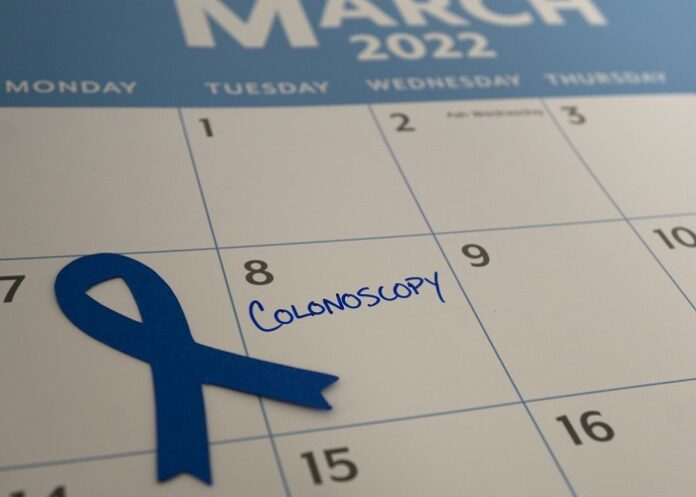Although people might prefer to get screened for colorectal cancer with a blood test rather than a colonoscopy, the latter stool-based procedure can prevent more deaths, suggests a recent study.
The researchers said twice as many colorectal cancer deaths would occur with blood-based screening as with colonoscopies, and that while the blood tests save more lives than getting no screening at all, and are more convenient and less invasive, they won’t prevent as many deaths.
For the study, researchers from the Stanford School of Medicine in California estimated the risk of developing and dying from colorectal cancers among 100 000 adults at average risk for these tumours. They calculated the risks based on the recommended screening schedule for different kinds of tests: a colonoscopy every 10 years, a stool-based test every one to three years, or a blood test every three years.
After analysing the data, they estimated that about two and a half times as many people might die of colorectal cancer with blood tests as with colonoscopies, according to their findings published in the Annals of Internal Medicine.
“Blood-based testing every three years may be much more convenient and palatable, but its expected benefit is substantially less profound,” said lead study author Uri Ladabaum, MD, a professor and director of the gastrointestinal cancer prevention programme at Stanford.
The odds
Compared with not getting screened at all, people who have a colonoscopy every 10 years are 79% less likely to develop colorectal cancer and 81% less likely to die from the tumours, the study found.
Similarly, annual stool-based testing was associated with a 71% lower risk of developing colorectal cancer and a 75% lower risk of dying from these tumours than not getting screened at all, reports Everyday Health.
The magnitude of risk reduction wasn’t as pronounced with blood tests, which were associated with a 42% lower risk of developing colorectal cancer and 54% to 56% lower risk of dying of these tumours than getting no screening at all.
Still, the results suggest that blood tests might be one way to reduce risk for people who otherwise wouldn’t get screened at all, said Electra Paskett, PhD, a professor of cancer research and director of the division of cancer prevention and control at The Ohio State University in Columbus.
“The best test is the test that gets done,” said Paskett, who wasn’t involved in the study.
Study details
Projected Impact and Cost-Effectiveness of Novel Molecular Blood-Based or Stool-Based Screening Tests for Colorectal Cancer
Uri Ladabaum, Ajitha Mannalithara, Robert Schoen et al.
Published in Annals of Internal Medicine on 26 October 2024
Abstract
Background
Cell-free DNA blood tests (cf-bDNA) and next-generation stool tests could change colorectal cancer (CRC) screening.
Objective
To estimate the clinical and economic impacts of novel CRC screening tests.
Design
Cost-effectiveness analysis using MOSAIC (Model of Screening and Surveillance for Colorectal Cancer).
Time Horizon
Ages 45 to 100 years.
Outcome Measures
Incidence and mortality of CRC, quality-adjusted life-years (QALYs), costs.
Results of Base-Case Analysis
For colonoscopy every 10 years, annual faecal immunochemical test (FIT), and triennial next-generation multitarget stool DNA, FIT-RNA, cf-bDNA (Guardant Shield), or cf-bDNA (Freenome), the relative rates (RRs) and 95% uncertainty intervals (UIs) versus no screening for CRC incidence were 0.21 (0.19 to 0.22), 0.29 (0.27 to 0.31), 0.33 (0.32 to 0.36), 0.32 (0.30 to 0.34), 0.58 (0.55 to 0.61) and 0.58 (0.55 to 0.60), respectively; the RRs for CRC death were 0.19 (0.17 to 0.20), 0.25 (0.23 to 0.27), 0.28 (0.27 to 0.30), 0.28 (0.26 to 0.30), 0.44 (0.42 to 0.47), and 0.46 (0.44 to 0.49), respectively. The cf-bDNA test (Shield; list price $1495) cost $89 600 ($74 800 to $102 300) per QALY gained versus no screening; alternatives were less costly and more effective.
Results of Sensitivity Analysis
Incremental costs exceeded incremental benefits when novel test intervals were shortened to two or one year. The cf-bDNA test matched FIT’s impact on CRC mortality at 1.35 (1.30 to 1.40)-fold FIT’s uptake rate, assuming equal colonoscopy follow-up. If persons who accept colonoscopy or stool tests shifted to cf-bDNA, CRC deaths increased. This adverse effect was overcome if every 3 such substitutions were counterbalanced by cf-bDNA uptake by 2 or more persons refusing alternatives, assuming equal colonoscopy follow-up.
Limitation
Longitudinal test-specific participation patterns are unknown.
Conclusion
First-generation cf-bDNA tests may deliver net benefit or harm, depending on the balance between achieving screening in persons who decline alternatives versus substituting cf-bDNA for more effective alternatives.
See more from MedicalBrief archives:
Colon cancer blood test needs healthcare sector buy-in
FDA green light for colon cancer blood test
Colonoscopy may not be gold standard of colon cancer screening – large randomised trial

